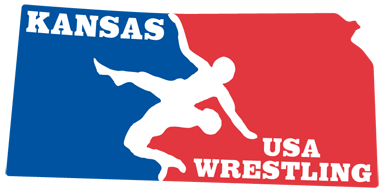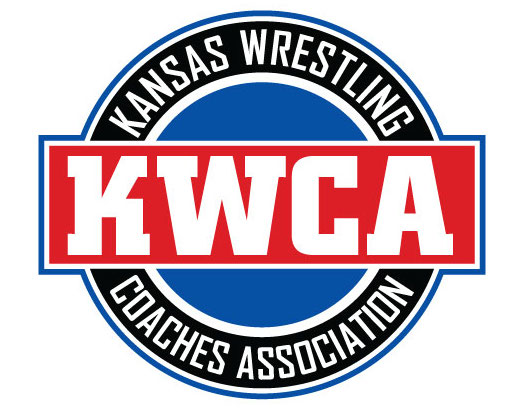Fine with me Vince already responded, I am posting the links to several interviews, audio, video, and news related regarding the movie. I would encourage anyone to check them out before making comment regarding the intent of Stallone and so forth. Especially since I'm not getting any compensation from the movie, I don't want to take time promoting the movie more than just a fan of Rocky. That said, regarding the debate, regarding the spiritual overtones, there is much one can check out if they really care.
http://www.rockyresources.com/UserFiles/File/mp3s/rocky_interview1.mp3Audio from interviews with Stallone on the issue -
http://www.rockyresources.com/downloads.php?category=5 Stallones own group,
http://www.rockyresources.com Free Republic -
http://www.freerepublic.com/focus/f-religion/1755709/postsChristianity Today -
http://www.christianitytoday.com/movies/interviews/sylvesterstallone.htmlFocus on the Family -
http://www.citizenlink.org/clcommentary/A000003061.cfmThe National Review -
http://article.nationalreview.com/?q=MWQ1ZTI0ZmU5ODk3NjQ5MTVhYmE3Y2Q0NjA0ZGNjZjYThere are many others you can look at, simply google Rocky Balboa, Jesus and you will see them. Here is an article posted from the interview I was also invited to where they used a little different slant, but, using and having access to many of the same quotes from Sylvester Stallone regarding the movie.
Rocky Balboa and Jesus
Column: Spiritually Significant Cinema
Meg Welch Dendler
ReligionAndSpirituality.com
December 11, 2006
"His whole life was a million-to-one shot." That tag may have been used to describe the original 1976 "Rocky," but it is also a good comment on the monumental breakthrough of Sylvester Stallone himself. He may have thought going from performing the full-monty in an adult film to writing and starring in the Oscar winner for best picture six years later was a big leap. But the changes that his life would go through from that victory 30 years ago to his current venture of "Rocky Balboa" were much deeper and more life-altering.
"I always felt as though I was a conduit for God's word," Stallone says. "That I wasn't creating it, because it didn't come from an academic background. I never was a major in English, and all of a sudden I write a screenplay that is being nominated for best picture of the year, so I figured it had to have come from God."
Sylvester Stallone, Rambo, Rocky, talking about God? You bet ya, and in spades!
Stallone wants to make the spiritual message of his new "Rocky Balboa" clear to church leaders and the press, so I had the opportunity to speak with him from his hotel room. Gracious, and speaking in the drawl that his fans would recognize anywhere, we chatted about what he hopes viewers will gain from his movies.
"Rocky is the most spiritual character I've even been involved with," he told me. "The first image of Rocky in 'Rocky I' was the picture of Jesus on the rafters of the fight club. It goes over the word 'resurrection' and down onto Rocky being pummeled, and we know that moment that he's being chosen by Jesus for a special mission. And that mission is to bring all these other outcasts together and accomplish something really wonderful."
I must admit, I never got that message from the opening of "Rocky." But when you know that message is there, it gives the film an interesting new twist. Re-watching it after our conversation, I noticed how many times Rocky prays or there is a cross in the background. It is subtle, but it is there.
"The images are there without hammering it home with such a heavy hand that people say, 'Oh, come on,'" Stallone says. "It's just subtle enough that I think it would be believable."
So, what's the spiritual message of "Rocky Balboa"? According to Stallone, "It's not over till it's over" is one, and "we cannot do it alone" is another. "Even in your darkest hour," he says, "if you adhere to certain Christian values — if you put yourself in the hands of Jesus and in the hands of God, follow the Scripture and follow the teachings of Jesus — you're gonna come out of this pipeline, out of this darkness, where you should be. And if you try to do it alone ... you can struggle and feel very, very alone in this."
Stallone says that he picked this time in life to make "Rocky Balboa" because he's realized, as a mature man, that faith is all there really is. "I think as a young person, you tend to think that the world somewhat revolves around you, that you can recover from anything, that you tend to have this kind of vim and vigor and energy to take on the world on your own shoulders. Well, after you've been knocked down a few times and the world has shown you its dark side, you realize that you need guidance, you need God's word, you need spiritual help, and that's when your journey will begin. As I get older, I realize how, very much, I rely upon Jesus, the word of God, and His support. ... "
He says that often when things hit bottom in life, he would turn to the moral compass that the character of Rocky provided and it would tend to give him new life. Working on those scripts, he says, took his focus off of the negative going on around him. He describes it as writing what came from his heart, or what was driven through his heart by a greater power — meaning God. "And as soon as I did that, I just started to live the right life. Everything just fell into place once I stopped trying to do it my way and did it the right way and asked for help and God gave me help."
He says that Rocky doesn't fight for the money or the glory. There's a divine reason behind it. "You don't have to be the biggest or the strongest or the fastest," he says, "but if you believe — truly believe — you will find a way to win." And winning doesn't always mean being the victor in the boxing ring. Rocky does not win the fight in the original film, but he finds love and dignity and fulfillment and has become a whole man. That's an even bigger, longer lasting victory.
Thinking about what has changed the most about his life between the huge success of "Rocky" and deciding to make "Rocky VI," Stallone says that he's really come to understand the absolute necessity of love, commitment, and devotion to others, more than being devoted to himself.
"I was influenced by every temptation there is in Hollywood," Stallone says. "I lived a life and I lived it with just charlatans and people who were there for the money and didn't care about me. And that was just spiraling downward badly, badly. And it wasn't until maybe nine or 10 years ago, when I turned 50, that I finally got back on the path again. I realized that I can't go this alone." So he reclaimed his spirituality, began to pray, returned to church, and had his children baptized. "Everything changed," he says.
Stallone didn't write "Rocky Balboa" for any studio or even for himself. He determined to just write about his journey — where he fell, how he got up, and who got him up.
"When you write from the heart," he says, "out comes the spiritual message. You just know that you're dealing with the human condition, and quite often, even though you may not say the word 'Jesus' in every line, you can feel it working through the characters. You can feel the Christian brotherhood, the humanity, the compassion, the God-fearing script. ... We need the God-fearing script, the script that really deals with compassion and deals with the word of Jesus and God. And believe me, people will rally behind it, because we need it."
So what does the future hold for continuing the spiritual message that he wants to share? A new Rambo, of course! And it will have Evangelical themes.
"If I stay to the script, that's what it's all about," he shared with me. "It's about these Christians, these organizations, Pan Ministries, that go into certain places in the Far East and bring medical attention and the Bible and just good will. And they have to go through land mines and terribly infested jungles — sometimes 200 miles on foot. And I thought — what would happen if they were captured? What would happen if they sort of disappeared? Someone would have to go in there and find them." A former green beret with big muscles and a big gun, I'm betting.
Before we hung up, I asked Stallone what he hoped my tweenage daughter would learn from "Rocky VI." What he hoped she'd take away from this film. He recommends that she listen closely to the speech that Rocky gives his son about how hard life is. "If she's prepared, she'll win. If she's not prepared, life will overwhelm her." After a long pause he added, "And never, ever quit something you love."
A 30-year-old Rocky Balboa said that all he wanted to do was go the distance and prove that he's not just another bum in the neighborhood. And the Italian Stallion is transformed from a thug to a professional athlete with the love of his life by his side — his dreams all come true. Stallone says that Rocky is biographical, so let's hope that he can also feel that he's gone the distance and made his dreams come true.







